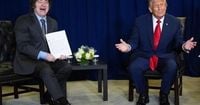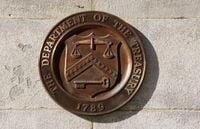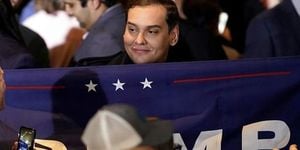Never before have Argentina’s midterm elections carried such global weight, or drawn such pointed attention from the White House. On Sunday, October 26, 2025, Argentines flocked to the polls for legislative elections that have become a litmus test for President Javier Milei’s radical free-market reforms—and, more unusually, a referendum on U.S. President Donald Trump’s foreign policy gamble in Latin America. With $20 billion in U.S. financial support on the line, the stakes couldn’t be higher for either leader or their countries.
The roots of this high-stakes drama stretch back to February 2024 in Maryland, where Milei, newly minted as Argentina’s president, first met Trump at the Conservative Political Action Conference (CPAC). The meeting was pure political theater: Milei, starstruck, grabbed Trump’s arms and beamed, “President! Thank you for your work for me. I’m very happy,” as YMCA thumped in the background, according to reporting by the Buenos Aires Herald. Trump, never one to miss a camera, responded with a twist on his famous slogan: “MAGA — Make Argentina Great Again.”
Since then, the two have met repeatedly, forging a public bond rooted in shared far-right ideology and mutual admiration. In fact, Milei was the first world leader to meet with Trump after his own electoral victory in November 2024. But their most consequential encounter came at a televised White House lunch, where the future of Argentina’s economy—and its relationship with the U.S.—was quietly hammered out. The deal on the table: a U.S. lifeline to Argentina, totaling a staggering $40 billion, designed to prop up the country’s battered peso and stabilize its fragile government.
Yet, the optics of that meeting told their own story. Milei spoke for just three minutes, offering effusive praise for Trump’s “great leadership” and supposed achievements in the Middle East. Trump, meanwhile, barely acknowledged his guest’s remarks, asking if anyone could interpret Milei’s “important, profound statement” before quickly moving on. No questions from the assembled journalists were directed at the Argentine president. It was clear: this was not a meeting of equals, but rather an alliance where Trump holds the cards—and the purse strings.
That dynamic has only deepened over the months. The alliance, as Anabella Busso of the University of Rosario told the Herald, “surpasses any other instance or experience of alignment or acquiescence that Argentina has had throughout its history in its bilateral relationship with the United States.” Both leaders have railed against what they see as “Marxist” attitudes in global affairs—on the environment, gender, multilateralism, and social policy. Milei has even followed Trump’s lead on the international stage, announcing plans to pull Argentina out of the World Health Organization, though the move had not materialized as of this writing.
But ideology is only one part of the equation. The financial lifeline from Washington is the real game-changer. According to Newsweek, the U.S. Treasury’s $20 billion currency swap—supplemented by a promised $20 billion from private banks—aims to “form an economic bridge with our allies,” in the words of Treasury Secretary Scott Bessent. “We do not want another failed state in Latin America and a strong, stable Argentina as a good neighbor is explicitly in the strategic interest of the United States,” Bessent said on social media. The bailout is unprecedented in both size and political conditions: Trump has made clear that continued support depends on Milei’s electoral success. “If he loses, we are not going to be generous with Argentina,” Trump warned at a White House meeting earlier this month. “If he doesn’t win, we’re gone.”
This overt politicization of foreign aid has ignited fierce debate in Washington. Critics on both sides of the aisle have slammed the deal. Democratic Senator Elizabeth Warren called it “a bailout of the rich disguised as international aid,” while Republican Senator Chuck Grassley fumed that it “rewards a rival soybean supplier at the expense of American farmers.” Even farm-state conservatives have balked at subsidizing a country with a long track record of defaults and economic mismanagement. “It is exceedingly rare for the Treasury to bail out a foreign government and Argentina is an odd choice given its record as a serial defaulter and its minimal economic ties to the United States,” Benjamin Gedan, Director of the Latin America Program at the Stimson Center, told Newsweek. “Clearly, Trump’s fondness for Javier Milei is a major factor.”
For Milei, the political stakes are equally daunting. Elected in 2023 on a platform of radical libertarian reforms, he has slashed public spending, ended central bank money printing, and brought inflation down from a staggering 211 percent to roughly 32 percent in under a year. International markets and figures like Elon Musk have cheered the turnaround. But the cost at home has been steep: interest rates have soared to 80 percent, unemployment has climbed, and real wages have stagnated. Universities, public hospitals, and pensioners have borne the brunt of the cuts. As a result, Milei’s approval ratings have plummeted, and a recent bribery scandal involving his sister has only deepened public skepticism.
The October 26 midterms saw half of Argentina’s lower Chamber of Deputies and a third of the Senate’s seats up for grabs. Milei’s party, La Libertad Avanza, aimed to increase its small minority in Congress—a crucial step to pushing through further reforms. Political analysts noted that if Milei’s coalition could secure more than 35 percent of the vote, he would be able to block opposition to his vetoes by forging alliances with other parties. Anything less, and his government could face legislative paralysis, impeachment threats, and the loss of U.S. financial support.
The outcome, watched closely in both Buenos Aires and Washington, also carried international implications. The Trump administration has explicitly linked the bailout to Argentina reducing its economic ties with China, especially in sectors like lithium, uranium, telecommunications, and defense. As The New York Times reported, U.S. officials have urged Milei’s government to phase out Chinese technology and stop using products from firms like Huawei. While Milei has echoed these anti-China sentiments—declaring, “We will not make deals with communists and murderers”—his government has so far maintained some pragmatic financial ties with Beijing, including a standing currency swap with the People’s Bank of China.
For many in Argentina, the U.S. bailout is a double-edged sword. Congressman Cristian Ritondo, an ally of Milei, dismissed criticism of U.S. involvement as “populist,” telling the Herald, “Some prefer a Chinese swap, and some prefer an American swap. We prefer to follow the democracy of the world, the most capitalist country. Populism will never like the most capitalist country in the world.” But others, like Busso, have warned that Milei’s approach “has not even the slightest trace of the Argentine Republic’s history of autonomy—his vocation is clearly a neocolonial one, not to call it colonial outright.”
As Sunday’s results trickle in and the future of Milei’s reforms—and Trump’s foreign policy—hang in the balance, one thing is clear: the outcome will reverberate far beyond Argentina’s borders. As Gedan put it, “If this gamble fails, it’s not just Argentina that pays the price. It’s U.S. credibility across Latin America.”
Whatever the final tally, the world is watching. The next chapter in the saga of Milei and Trump will shape not only Argentina’s fate, but also the evolving contest for influence in the Americas.






